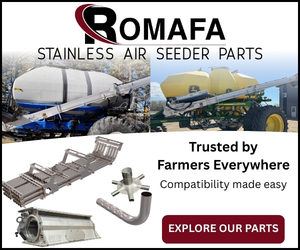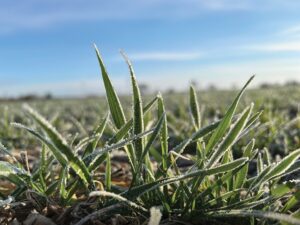Business side: Taxing details
CONVERSATIONS WITH BUSINESS EXPERTS

(J.M) WHAT’S IMPORTANT TO KNOW ABOUT FARM EQUIPMENT DEPRECIATION FOR TAX PURPOSES?
(T.B.) Depreciation for tax purposes is called capital cost allowance (CCA). There are three common CCA classes most farmers use for asset depreciation rates:
• Class 6 – buildings, including grain storage bins
• Depreciation rate: 5% first year, 10% remaining years
• Class 8 – equipment, not self-propelled
• Depreciation rate: 10% first year, 20% remaining years
• Class 10 – equipment, self-propelled and wagons
• Depreciation rate: 15% first year, 30% remaining years
CCA is the deduction the Canada Revenue Agency (CRA) allows a farm business to recognize the reduction of an asset value over time. It’s important to farm taxes because the faster the depreciation, the greater the allowable expense on a farm business tax statement. It’s also important to understand what types of buildings and equipment qualify for each CCA class to ensure you’re getting the most from your tax exemption options. For example, wagons, including grain buggies, classify as Class 10 that has a higher CCA rate.
WHAT’S IMPORTANT TO KNOW ABOUT CAPITAL COST ALLOWANCE OF GRAIN EQUIPMENT?
Grain storage bins are a popular topic when it comes to taxes. The question comes down to buying or leasing grain bins. If owned, grain bins fall under Class 6, and they are slower to write off as a business expense. Depending on the initial cost, grain bins can take more than 10 years to write off. A popular business decision among farm owners is a lease to own option. The CRA considers a lease an expense, not a capital item, making the lease payments an allowable business expense. Farmers can often write off a grain bin in less time under a lease to own agreement, making regular payments to the leasing company, than the allowable CCA of a purchased grain bin.
Purchase and ownership of grain bins versus the lease to own option have tax implications and should be carefully considered. Faster depreciation should be weighed against interest rates. Farm business owners need to weigh the ability to write off depreciation faster with the interest rates on a loan and the interest rates on a lease.
ANY OTHER TAX TIPS ON FARM ASSET DEPRECIATION?
One other thing to keep in mind is the tax consequences of disposing of an asset. Depreciation works in a farm business owner’s favour when it’s an expense, but selling or disposing of a depreciated asset has consequences too. Depending on the situation and how much the asset has depreciated, a sale may incur income, capital gains, or a loss. Be sure to consult an agricultural accountant to be sure you’re taking advantage of the proper CCA classes and discuss individual farm business opportunities like the purchase or lease of grain bins to make the best decision for your farm. •
























